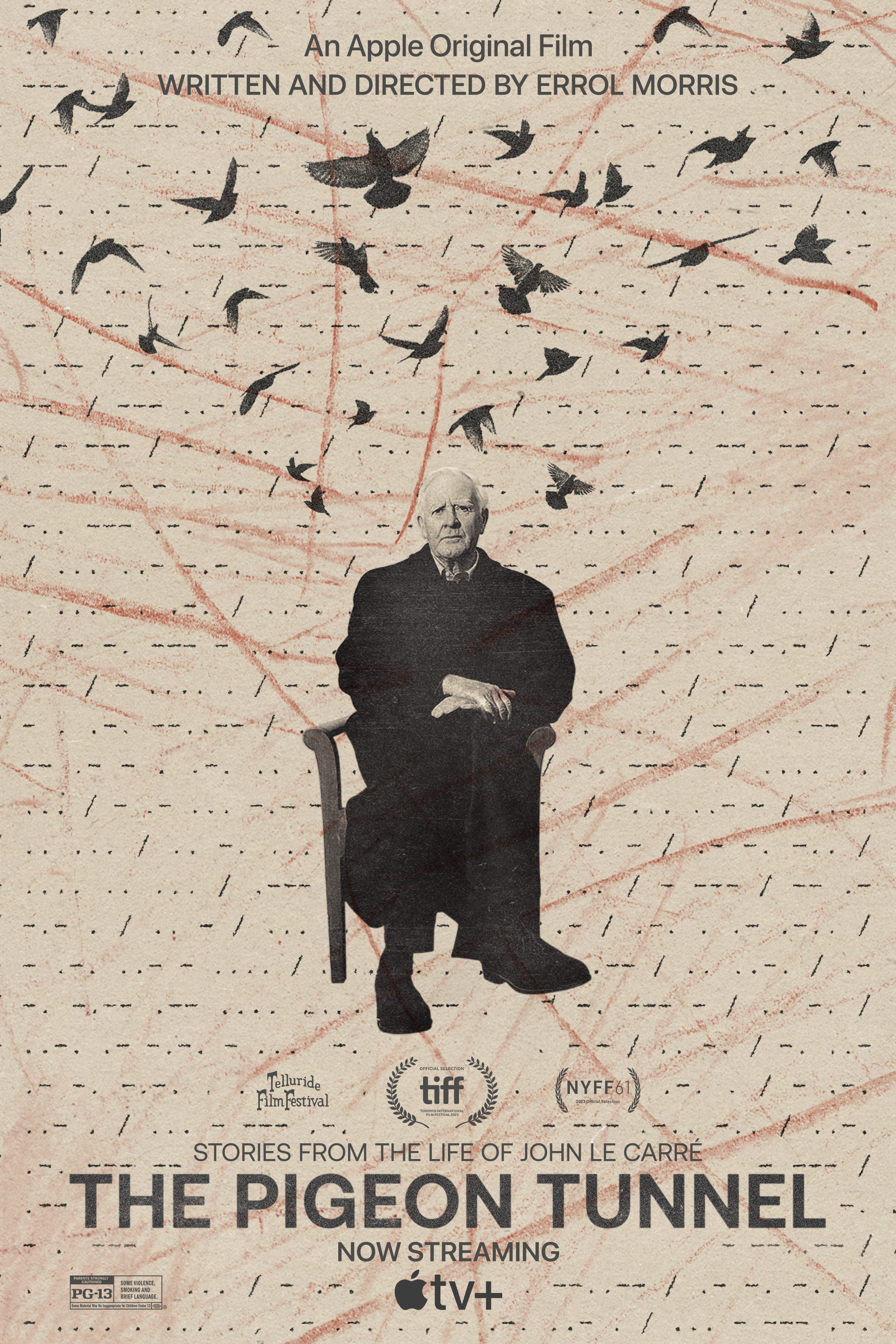 You're never too old to be in the spy game, even if you're a reader... or a bookseller. For reasons that shall remain classified (because I don't know what they are), I've been surrounded by old spies lately, chief among them the late John le Carré. Not only did I rewatch the 1982 TV series Smiley's People with Alec Guinness and the 2011 film Tinker Tailor Soldier Spy with Gary Oldman, but I also saw The Pigeon Tunnel, a new documentary in which le Carré parries the filmmaker's questions with the cool deftness of Smiley himself.
You're never too old to be in the spy game, even if you're a reader... or a bookseller. For reasons that shall remain classified (because I don't know what they are), I've been surrounded by old spies lately, chief among them the late John le Carré. Not only did I rewatch the 1982 TV series Smiley's People with Alec Guinness and the 2011 film Tinker Tailor Soldier Spy with Gary Oldman, but I also saw The Pigeon Tunnel, a new documentary in which le Carré parries the filmmaker's questions with the cool deftness of Smiley himself.
In addition, I've been reading A Private Spy: The Letters of John le Carré, where I came across a 2013 letter to John and Mary James, owners of the Aldeburgh Bookshop in Aldeburgh, U.K. In the letter, le Carré writes: "As we confided in you, I am using Aldeburgh and the surrounding area as the setting for my novel, and it would be wonderful if we could spend a little time with you and drink in the atmosphere. I have a bookshop at the centre of my novel, and would love to pick your collective brains about the ups and downs of running one."
The bookshop eventually got its nod in le Carré's posthumously published novel, Silverview ("He undertakes a one-day pilgrimage to the nearby town of Aldeburgh, sits at the feet of the proprietors of an independent bookshop of national renown, talks festivals and book clubs, vows to study and learn. He comes away convinced he will never make the grade however many Sebalds he reads.")
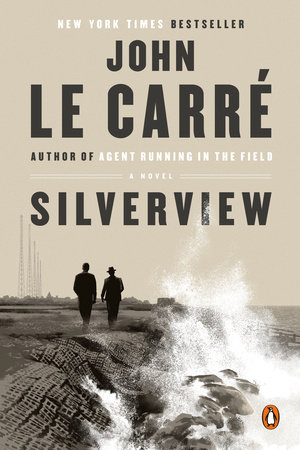 Bookselling is a key to the plot of Silverview, beginning when a bookseller named Julian Lawndsley emerges "from the side door of his brand new shop," the basement of which will become something of a nest for spies. You just never know where the bookselling spy game may take you.
Bookselling is a key to the plot of Silverview, beginning when a bookseller named Julian Lawndsley emerges "from the side door of his brand new shop," the basement of which will become something of a nest for spies. You just never know where the bookselling spy game may take you.
Where it takes Lawndsley, whose "lack of the basic literary education required of your upmarket bookseller was not to be repaired in a couple of months," is into creating the mysterious Republic of Literature, "a purposefully selected shrine to the most challenging minds of our time--and of all time." It is, of course, not what it seems to be. This is the spy game, after all.
 "We think the 'small seaside town perched on the outer shores of East Anglia' in #johnlecarre new novel #silverview is #aldeburgh, don’t you? John le Carre visited us @aldebooks when doing his research," the Aldeburgh Bookshop TwiXed in 2021.
"We think the 'small seaside town perched on the outer shores of East Anglia' in #johnlecarre new novel #silverview is #aldeburgh, don’t you? John le Carre visited us @aldebooks when doing his research," the Aldeburgh Bookshop TwiXed in 2021.
An old spy in a bookshop; I like the image. As it happens (inevitably, I've heard), I'm now older than Alec Guinness's George Smiley and much older than Gary Oldman's Jackson Lamb in Slow Horses, the brilliant Apple TV+ series based on Mick Herron's espionage novels. The series is about a team of misfit British intelligence agents exiled to Slough House, which serves as an MI5 dumping ground department for exiled agents due to their career-ending mistakes.
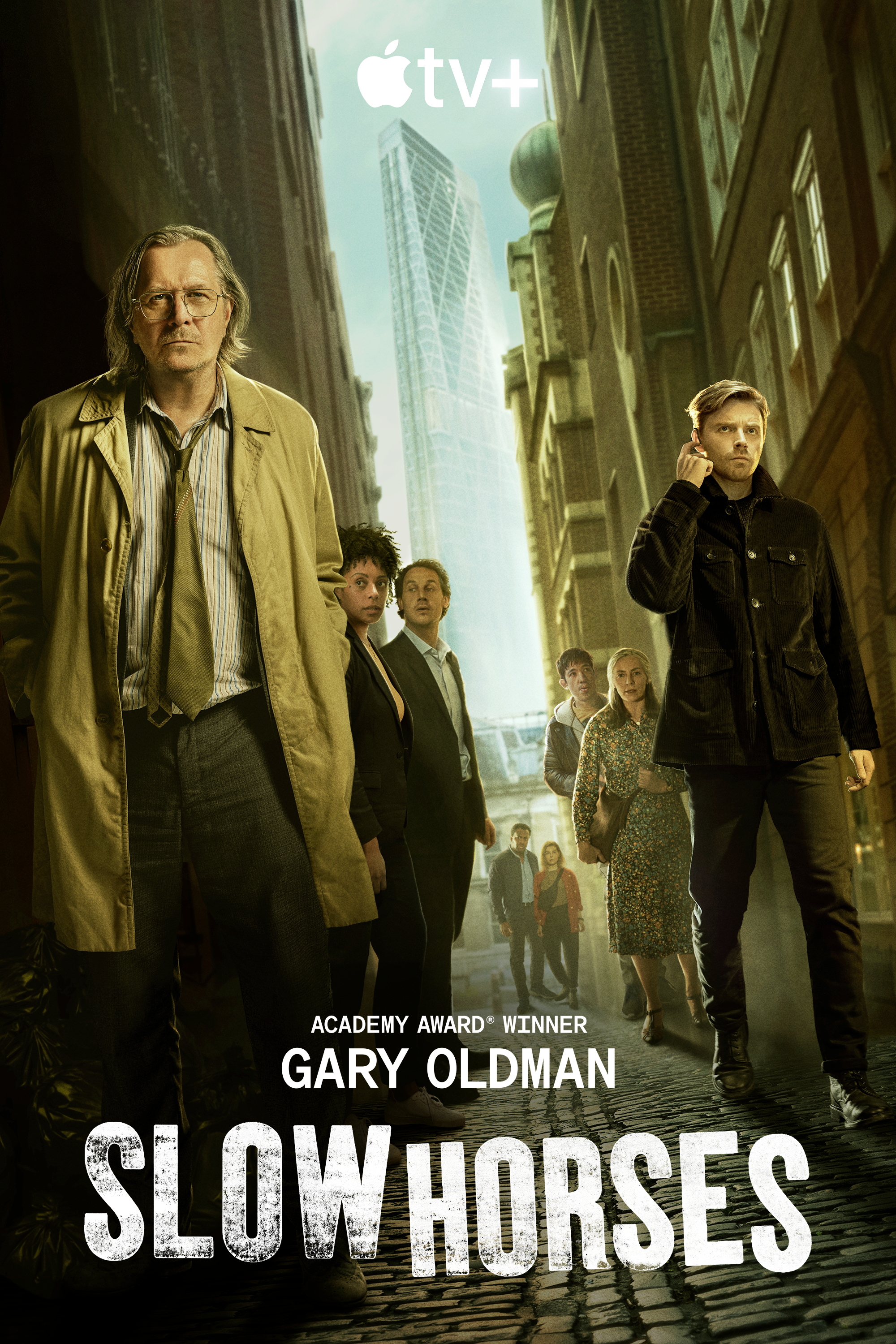 I've now watched all three seasons of Slow Horses and read some of the books. The team is reluctantly led by disheveled, disgraced and--by MI5's less than infallible standards--disposable Jackson Lamb (Oldman), whose team building pep talks tend to run along the lines of: "Working with you has been the lowest point in a disappointing career."
I've now watched all three seasons of Slow Horses and read some of the books. The team is reluctantly led by disheveled, disgraced and--by MI5's less than infallible standards--disposable Jackson Lamb (Oldman), whose team building pep talks tend to run along the lines of: "Working with you has been the lowest point in a disappointing career."
And since we're talking about aging members of the spy game here, it should be noted that 80-year-old honorary agent Mick Jagger, a fan of Herron's novels, co-wrote and performs the show's perfect theme song ("Surrounded by losers, misfits and boozers/ Hanging by your fingernails/ You made one mistake, you got burned at the stake/ You're finished, you're foolish, you failed").
"I empathize more with failures than I do with successes," Herron told the New York Times recently. "Looking back, I remain at a stage where I've been a failure for longer than I've been a success. So until it balances out, I'll always feel that way."
Once upon a time, I was a young participant in the spy game, beginning in the mid-1960s when I started reading James Bond novels in high school. How deep the obsession became can be gleaned from a single piece of evidence in my file (aka high school yearbook), which for reasons of security (or insecurity) remains in my possession.
On page 52, there is a "Senior Class Prophecy," predicting what the graduating class of 1968--a class as ordinary as any in yearbooks throughout history--would be doing 50 years hence. The editorial staff looked into their crystal ball and wrote the following: "Bob Gray... famed critic of Ian Fleming." Hasn't happened yet, but the clock is still ticking.
 |
Gary Oldman as Jackson Lamb
(courtesy Apple TV+) |
"Lamb, she thought, would keep moving," Herron writes in Real Tigers, upon which the third season of Slow Horses is based. "Not the Lamb he was today, but the Lamb he'd been back whenever, living the life that had turned him into the Lamb he was today."
I used to think my life in the spy reading game was just a brief stretch of time in my youth, but the past is an incomplete dossier, destined to be lost in a battered file cabinet. Six decades later, I'm still at it. In Pigeon Tunnel, le Carré observed that "what I did was reinvent the secret world and fill it with my own people."






IPC.0204.S3.INDIEPRESSMONTHCONTEST.gif)




 Dog Ear Books
Dog Ear Books
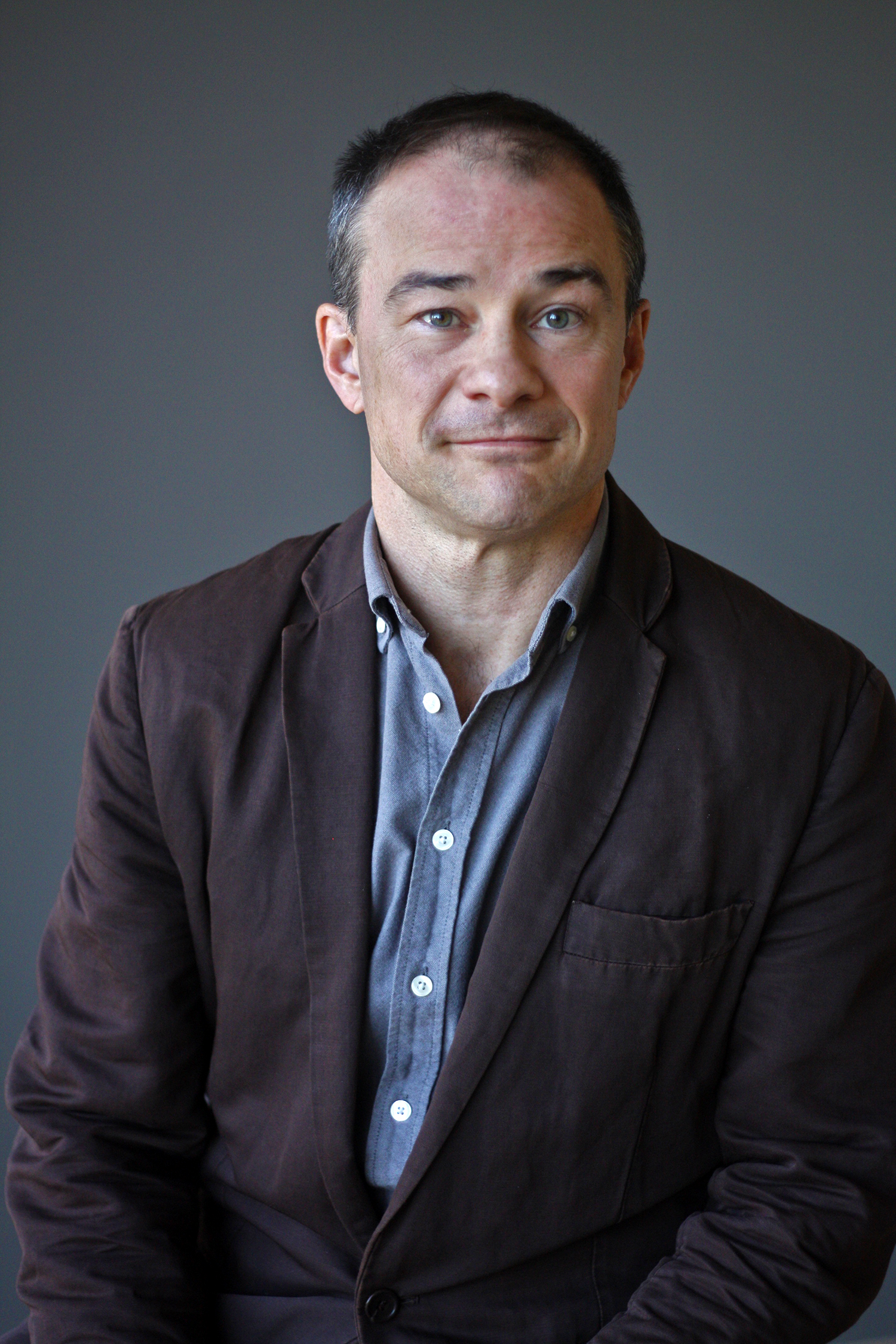


IPC.0211.T4.INDIEPRESSMONTH.gif)

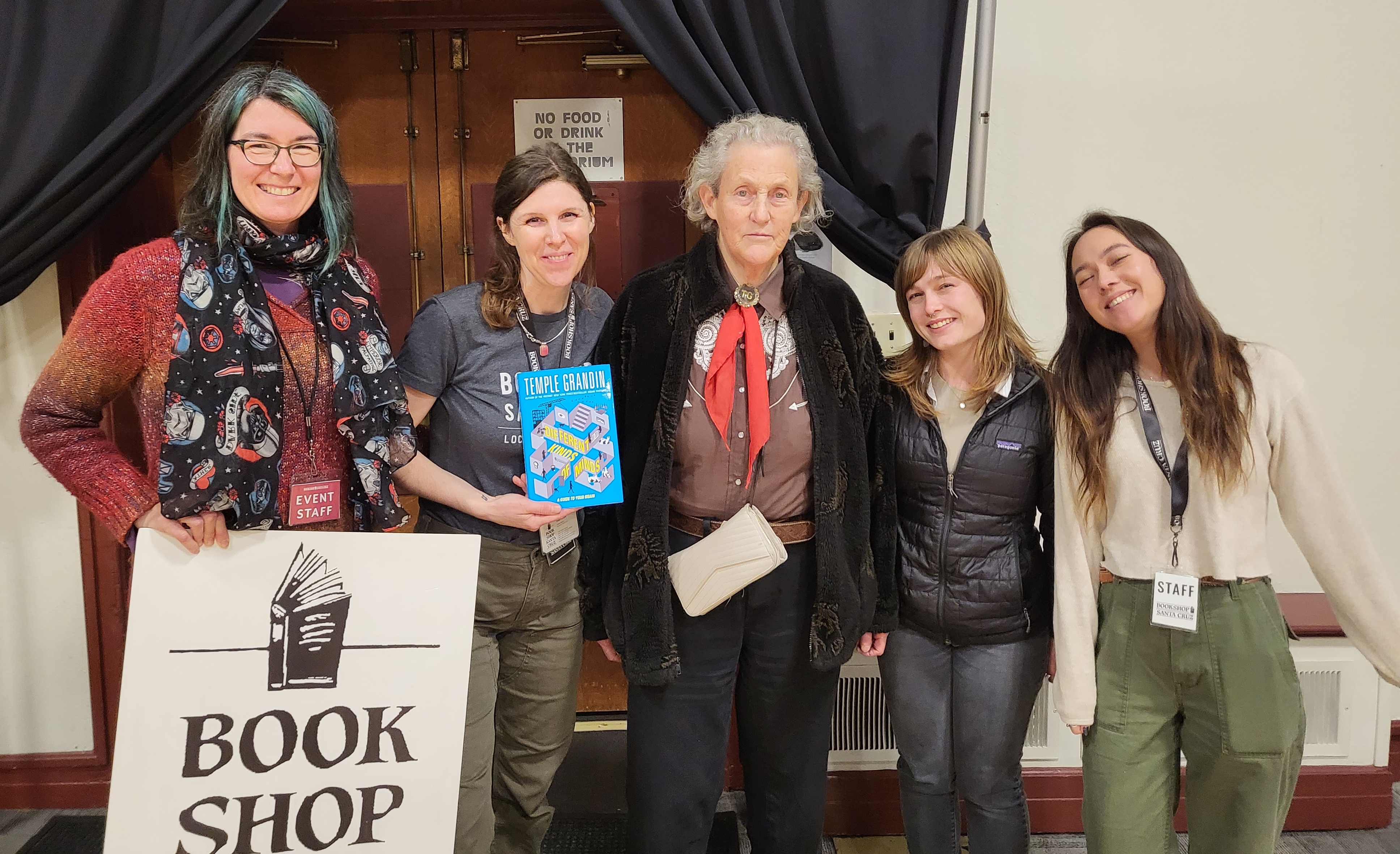
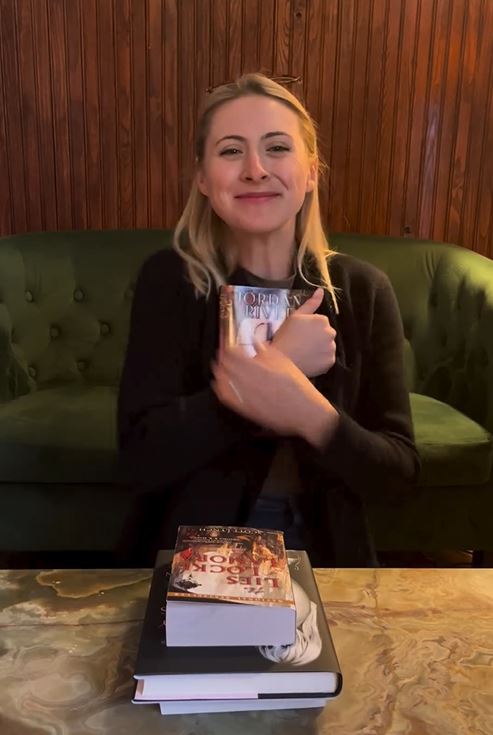
 "Rob and I are pretty
"Rob and I are pretty 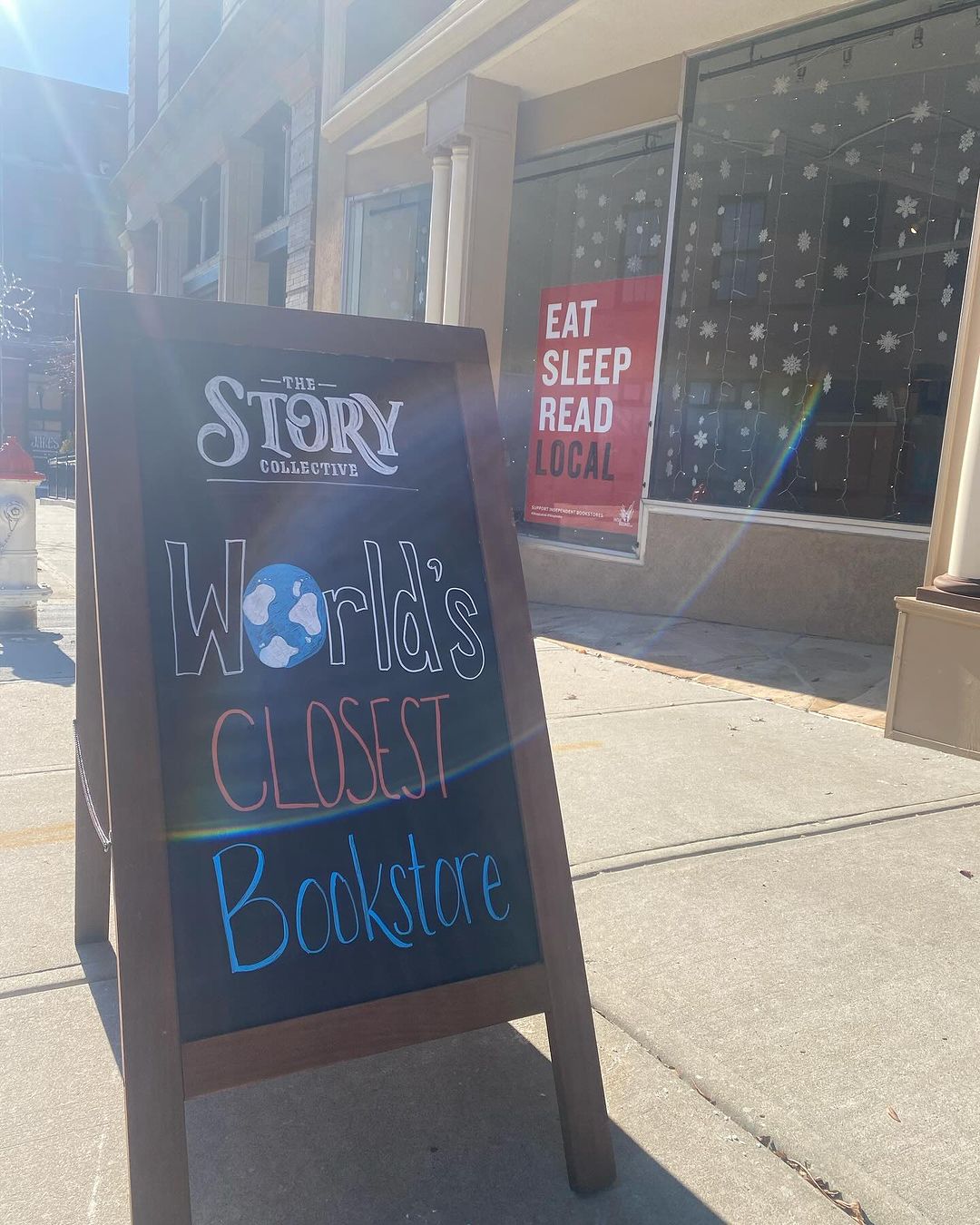 "Come see me on this sunny day!"
"Come see me on this sunny day!"  Impossible Creatures by Katherine Rundell has been chosen as
Impossible Creatures by Katherine Rundell has been chosen as 
 Book you've faked reading:
Book you've faked reading: In her memoir, My Side of the River, Elizabeth Camarillo Gutierrez tells a powerful, often heartbreaking story of being a "first gen" child of undocumented immigrants, forced to find her own way at a young age. Camarillo Gutierrez strikes a tone both reflective and urgent as she chronicles a childhood lived between Mexico and Tucson, Ariz., and the practical and emotional challenges she faced when her parents' visas expired and they were unable to return to the U.S.
In her memoir, My Side of the River, Elizabeth Camarillo Gutierrez tells a powerful, often heartbreaking story of being a "first gen" child of undocumented immigrants, forced to find her own way at a young age. Camarillo Gutierrez strikes a tone both reflective and urgent as she chronicles a childhood lived between Mexico and Tucson, Ariz., and the practical and emotional challenges she faced when her parents' visas expired and they were unable to return to the U.S.
 You're never too old to be in the spy game, even if you're a reader... or a bookseller. For reasons that shall remain classified (because I don't know what they are), I've been surrounded by old spies lately, chief among them the late John le Carré. Not only did I rewatch the 1982 TV series Smiley's People with Alec Guinness and the 2011 film Tinker Tailor Soldier Spy with Gary Oldman, but I also saw
You're never too old to be in the spy game, even if you're a reader... or a bookseller. For reasons that shall remain classified (because I don't know what they are), I've been surrounded by old spies lately, chief among them the late John le Carré. Not only did I rewatch the 1982 TV series Smiley's People with Alec Guinness and the 2011 film Tinker Tailor Soldier Spy with Gary Oldman, but I also saw  Bookselling is a key to the plot of Silverview, beginning when a bookseller named Julian Lawndsley emerges "from the side door of his brand new shop," the basement of which will become something of a nest for spies. You just never know where the bookselling spy game may take you.
Bookselling is a key to the plot of Silverview, beginning when a bookseller named Julian Lawndsley emerges "from the side door of his brand new shop," the basement of which will become something of a nest for spies. You just never know where the bookselling spy game may take you. "We think the 'small seaside town perched on the outer shores of East Anglia' in #johnlecarre new novel #silverview is #aldeburgh, don’t you?
"We think the 'small seaside town perched on the outer shores of East Anglia' in #johnlecarre new novel #silverview is #aldeburgh, don’t you?  I've now watched all three seasons of Slow Horses and read some of the books. The team is reluctantly led by disheveled, disgraced and--by MI5's less than infallible standards--disposable Jackson Lamb (Oldman), whose team building pep talks tend to run along the lines of: "Working with you has been the lowest point in a disappointing career."
I've now watched all three seasons of Slow Horses and read some of the books. The team is reluctantly led by disheveled, disgraced and--by MI5's less than infallible standards--disposable Jackson Lamb (Oldman), whose team building pep talks tend to run along the lines of: "Working with you has been the lowest point in a disappointing career." 